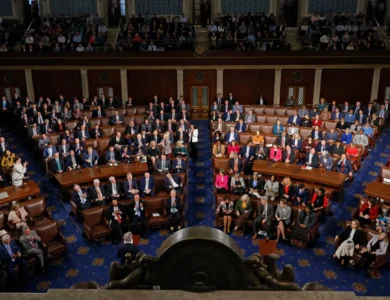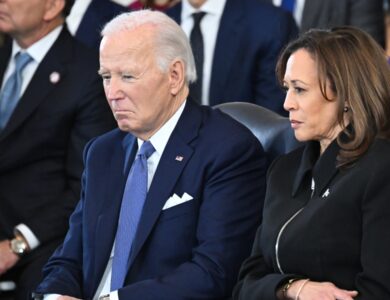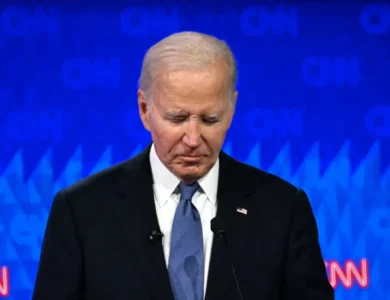Judge OKs Trump’s Use of Alien Enemies Act To Deport Migrants Deemed Terrorists

For the first time, a federal judge has supported President Donald Trump’s use of the Alien Enemies Act, a wartime power Trump invoked to deport Venezuelans he claims are members of a criminal gang.
U.S. District Judge Stephanie Haines, a Trump appointee in Pennsylvania, upheld Trump’s March 14 proclamation, which declared that Tren de Aragua, a violent gang from Venezuela, is carrying out an “incursion” into the United States. Trump has also deemed that gang, as well as MS-13 from El Salvador, as a terrorist organization.
Haines also ruled that the administration has not been providing sufficient notice to individuals facing removal under the AEA. She ordered that the administration must give at least 21 days’ notice, significantly longer than the 12 hours that some deportees have received, NPR reported.
“This case poses significant issues that are deeply interwoven with the constitutional principles upon which this Nation’s government is founded,” Haines wrote. “In approaching these issues, the Court begins by stressing the questions that it is not resolving at this time.”
The ruling does not address whether the administration can remove individuals under other immigration laws, nor does it determine whether Trump can invoke the Alien Enemies Act to deport people who simply migrated to the U.S. and are not members of a foreign terrorist organization, Haines wrote. She also refrained from commenting on whether individuals suspected of being members of other gangs could be removed under the Act.
However, she did state that the Act can be used to remove Venezuelan citizens who are at least 14 years old, are in the U.S. without legal immigration status, and are members of Tren de Aragua.
“Having done its job, the Court now leaves it to the Political Branches of the government, and ultimately to the people who elect those individuals, to decide whether the laws and those executing them continue to reflect their will,” Haines wrote.
In March, Trump issued a proclamation claiming that Tren de Aragua was invading the U.S. He stated that he had special powers to deport immigrants, identified by his administration as gang members, without the usual court proceedings. Following the proclamation, the administration began deporting individuals designated as Tren de Aragua members to a notorious prison in El Salvador, as well as known members of the MS-13 gang.
The proclamation and deportations triggered a wave of lawsuits in several states, including the case that led to Haines’ ruling on Tuesday. The lawsuit was filed by a Venezuelan national who claims he fled to the U.S. with his wife and children in 2023 after facing extortion in his home country.
He was arrested in February after a neighbor reported him as a member of Tren de Aragua — a claim he strongly denies, NPR reported.
Haines initially approved the case as a class action, temporarily blocking the Trump administration from using the AEA to deport any migrants within her district. However, she lifted that designation on Tuesday, allowing deportations to resume, provided that those being removed are given at least 21 days’ notice in both English and Spanish, along with an “opportunity to be heard” regarding any objections they may have, the outlet said.
In the Texas case, a woman testified that she fled Venezuela after facing repeated harassment, assault, and intimidation as part of political persecution. She arrived in the U.S. in 2023, was granted temporary protected status under the Biden administration, and is currently seeking asylum.
However, last month, she was arrested in Ohio and accused of being a gang member, which she denies. She is currently being held in El Paso and has asked Senior U.S. District Judge David Briones to block the Trump administration from deporting her and other detainees in the region.
She argued that the president’s proclamation violates the due process rights of those facing removal and incorrectly labels Tren de Aragua as an invasion by a foreign government, NPR said.





